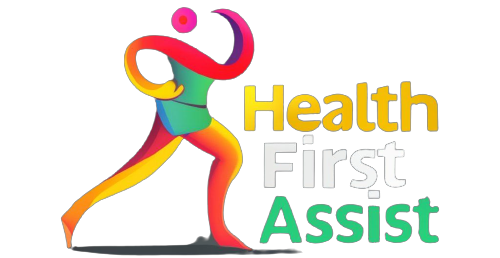Tips for Managing Stress and Anxiety in Daily Life
Managing stress and anxiety is very important for our health. Because, feeling stressed or anxious at any time is something that humans always experience, and that is normal. However, prolonged stress that is left unmanaged can significantly impact both physical and mental health. According to the American Psychological Association, more than 75% of adults in the United States report experiencing stress or anxiety symptoms regularly. While some stress is unavoidable, especially during uncertain times, making lifestyle changes and practicing coping strategies can help gain better control over how stress and worry affect you. This article provides actionable tips for managing day-to-day stress and anxiety through diet, exercise, relaxation techniques, and cognitive methods.
The Health Effects of Unmanaged Stress and Anxiety
Constantly feeling stressed or anxious takes a toll on health and well-being if left unaddressed. “Chronic stress places a burden on the body over time, potentially leading to numerous health issues,” says psychologist Dr. Lindsay Morrell of the Anxiety and Stress Disorders Institute of Maryland. Some health consequences of prolonged stress include:
- Increases the potential risk of heart disease, high blood pressure, and stroke
- Weakened immune system and frequent illnesses
- Digestive problems like acid reflux, ulcers, and IBS
- Sleep disturbances and fatigue
- Muscle tension, joint, and back pain
- Worsening of anxiety and depression symptoms
The good news is adopting a healthy lifestyle and effective coping strategies has been shown to significantly alleviate stress levels and even reduce related health risks. Making an effort to regularly manage stress can keep its physical and mental impacts at bay.
There many aspects in managing stress anxiety, such as diet, exercise, relaxation techniques, and cognitive strategies. The different components that work together are to successfully manage stress and anxiety in daily life. Developing habits across all four categories can help you stay in better control of how stress impacts your well-being.
Tips for Managing Stress and Anxiety
Here are some specific, actionable tips and techniques across the four areas to help reduce and prevent stress in your daily routine:
Diet
- Eat regularly and avoid skipping meals
- Focus on whole, unprocessed foods and limit unhealthy fats, sugar, and processed meals
- Drink plenty of water and limit caffeine, which can aggravate anxiety and uneven energy
- Get essential vitamins, minerals, and nutrients through a balanced diet
Exercise
- Aim for at least 30 mins of physical activity daily, such as walking, jogging, swimming, dancing
- Exercise has been shown to reduce stress hormones and boost mood-lifting endorphins
- Start small if needed with 10 mins daily and gradually increase duration and intensity
Relaxation Techniques
- Practice deep breathing for 5 mins daily to calm the nerves
- Enjoy relaxing hobbies like reading, knitting, drawing, playing an instrument
- Consider massage, jacuzzi baths, yoga, or meditation to release tension in the body
- Get 7-9 hours of quality sleep nightly for energy and mental clarity
Cognitive Strategies
- Identify sources of stress and problem-solve productive solutions
- Challenge anxious thoughts with rational, realistic perspectives
- Set priorities and say no to extra commitments if needed
- Maintain a gratitude journal or focus on positive aspects of each day
“Learning to manage daily stress through a holistic lifestyle approach is key for both mental and physical wellbeing.
— Dr. Cynthia Ackrill, psychologist Calm Clinic.
Consistency across these different areas prevents stress from spiralling out of control.
Additional Stress-Busting Techniques
Beyond the core tips, here are some extra strategies that may also effectively reduce stress:
- Social Support – Spending quality time with caring people who make you feel supported provides a buffer against life’s difficulties.
- Laugh Daily – Laughter releases feel-good hormones that relax the body. Watch comedy shows, funny videos, or goof around with friends and family.
- Creative Expression – Letting out emotions through art, journaling, colouring, playing music, or other hobbies provides an enjoyable stress outlet.
- Nature Time – Research links spending time in natural environments with stress reduction. Enjoy outdoor activities or window views of green spaces.
- Spirituality – For some, scripture reading, prayer, volunteering, or creative spiritual practices instil peace and higher purpose.
- Abdominal Breathing – Deep belly breaths relax the parasympathetic nervous system through the diaphragm. Try 4-second inhales and 6-second exhales.
- Progressive Muscle Relaxation – Alternately tensing and relaxing all major muscle groups releases tension from head to toe and quiets the mind.
A daily routine incorporating some combination of lifestyle and coping tools can significantly reduce stressors’ negative health effects over the long run. Be patient and remember small steps lead to big differences if maintained consistently. Your mental and physical well-being is worth the effort.
Implementing a combination of lifestyle changes and coping strategies provides the best defence against daily stress and anxiety. With consistency, this holistic approach goes a long way in safeguarding both mental and physical health.
References
- American Psychological Association. (n.d.). Stress effects on the body.
- Anxiety and Depression Association of America. (n.d.). Stress management.
- Centers for Disease Control and Prevention. (2021, March 17). Stress and coping.
- Cleveland Clinic. (2021). Stress management: Ways to reduce and prevent stress.
- Morrell, Lindsay. Interview. Tips for Daily Stress Management. June 15, 2022.


[…] Tips for Managing Stress and Anxiety […]